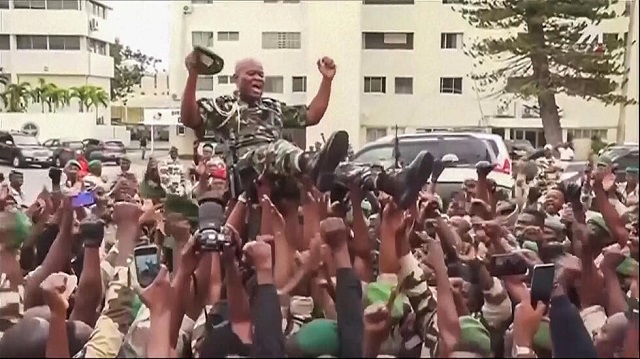
3 key factors that ended the Bongo dynasty
ANALYSIS | DOUGLAS YATES | The recent military intervention that put an end to the Bongo family’s 56-year hold on power in Gabon has been many years in the making. Its roots can be traced back to when deposed president Ali Bongo Ondimba suffered a stroke in 2018.
The political crisis caused by Bongo’s illness and the opaque manner in which he continued to hold the reins of power through close family members during his convalescence created tensions within the power circles.
On one side were critics who demanded his resignation and sought to end the Bongo dynasty’s grip on power in the oil rich Central African country. These critics were mostly responsible for the emergence of Albert Ondo Ossa as a consensus opposition presidential candidate at the 2023 elections.
On the other side were loyal members of the ruling Parti Démocratique Gabonais. The party was founded by former president Omar Bongo, who ruled the country from 1967 to 2009. In this group were party members who continued to play an institutional charade of cabinet meetings and rubber-stamp legislation that masked the troubling absence and incapacitation of Ali Bongo.
The group also includes powerful clan members inside the Bongo dynasty jockeying for position and wealth in the uncertainty surrounding Ali Bongo’s health.
As a political scientist specialising in African politics and the politics of the oil industry in Africa, I have researched the implications of oil rent dependency and neocolonialism in Gabon.
My view is that the corrupt oil-rentier dynastic regime that ruled Gabon for the past half century was brought to an end by a combination of three factors. They are Ali Bongo’s illness; the contagion effect of other recent successful coups in Africa; and the power tussle between General Brice Oligui Nguema (the coup leader, who is said to be Bongo’s distant cousin) and Sylvia Bongo Ondimba, Ali Bongo’s wife. The former first lady was believed to be preparing her son, Noureddine Bongo, to succeed his father.
Factors in favour of coup
Before the coup d’état there was little hope that Ali Bongo Ondimba would lose his third re-election bid.
His party had over 80% of the seats in the legislature, control of regional and municipal governments, and a hold on the courts and the security apparatus of the state.
Ali Bongo was said to have won 64.27% of votes cast in the election, which the opposition described as a sham. According to the electoral umpire, Bongo’s main challenger, Albert Ondo Ossa, came second with 30.77%. That was before the military struck.
One of the factors that encouraged the military intervention in Gabon is the contagion effect of recent successful coups in Africa. A series of coups in Mali (2020), Chad (2021), Guinea (2021), Burkina Faso (2022) and Niger (2022) appear to have demonstrated to Gabon’s military that not only was a successful coup possible, it was acceptable. After the coup, crowds came out in Libreville and danced in the streets.
The second factor is a power tussle between the coup leader, Nguema, and Sylvia Bongo. The deposed president’s wife is widely believed to have grown in influence after her husband suffered a stroke in 2018. Nguema was relieved of his duties as head of the president’s security.
If it is true that Sylvia was preparing her son to succeed his father, Noureddine would have been the third generation of the Bongo family to rule Gabon. Ali Bongo succeeded his father in 2009.
The way forward
Prior to the 30 August coup, the only thing that seemed to have united the numerous opposition parties in Gabon (who barely managed to rally around a joint candidate just nine days before the 26 August poll) was the desire to remove Ali Bongo from office. Now that a coup appears to have achieved that, it will be difficult for Albert Ondo Ossa to take office.
Given what appears like the willingness of France and the United States to accept this palace coup, the only question is whether Nguema will lead a transition to civilian rule, hold elections, refuse to present himself for office, or become the next member of the Bongo clan to rule.
*****
Douglas Yates is Professor of Political Science , American Graduate School in Paris (AGS)
Source: The Conversation Africa
 The Independent Uganda: You get the Truth we Pay the Price
The Independent Uganda: You get the Truth we Pay the Price


